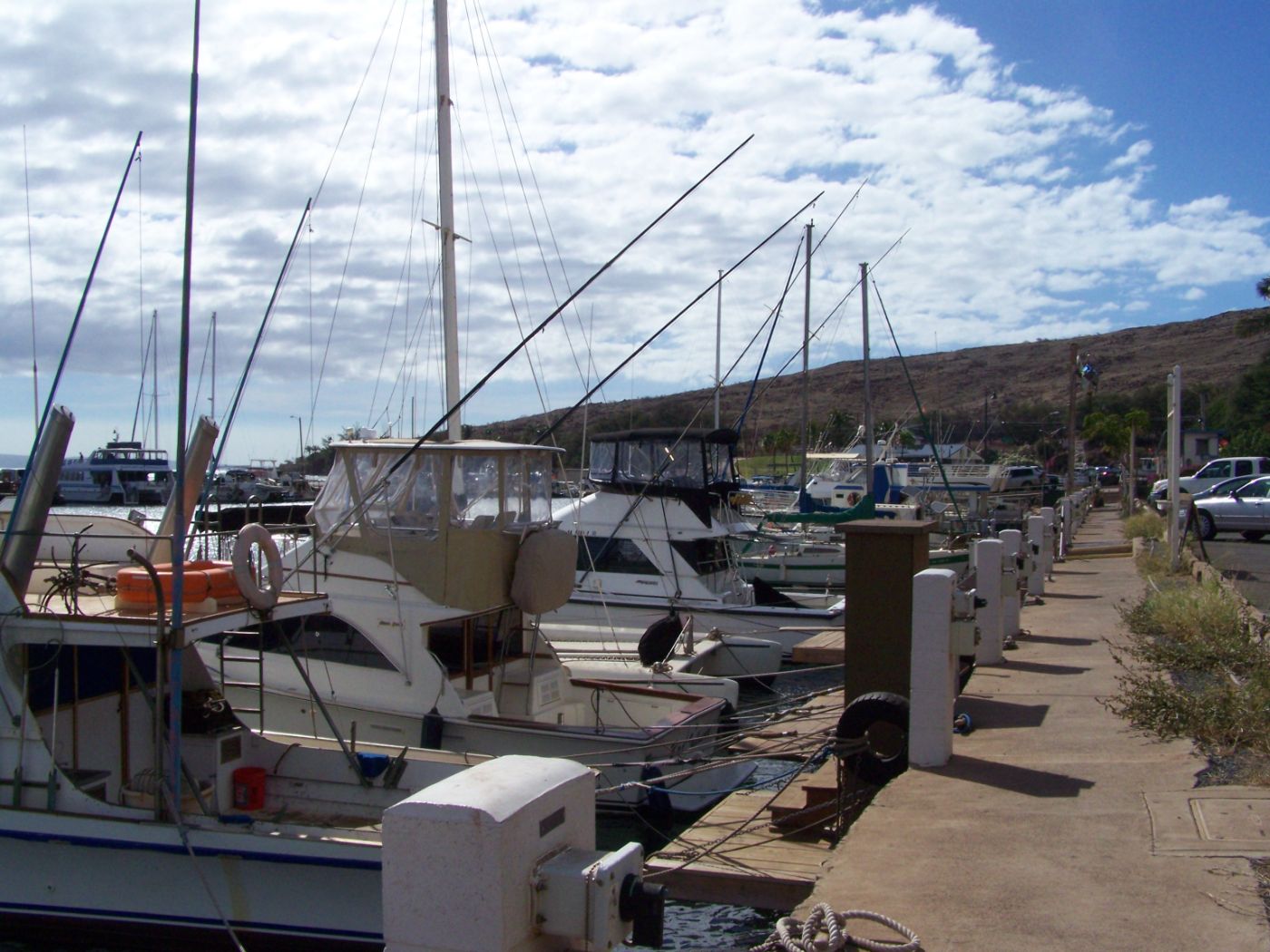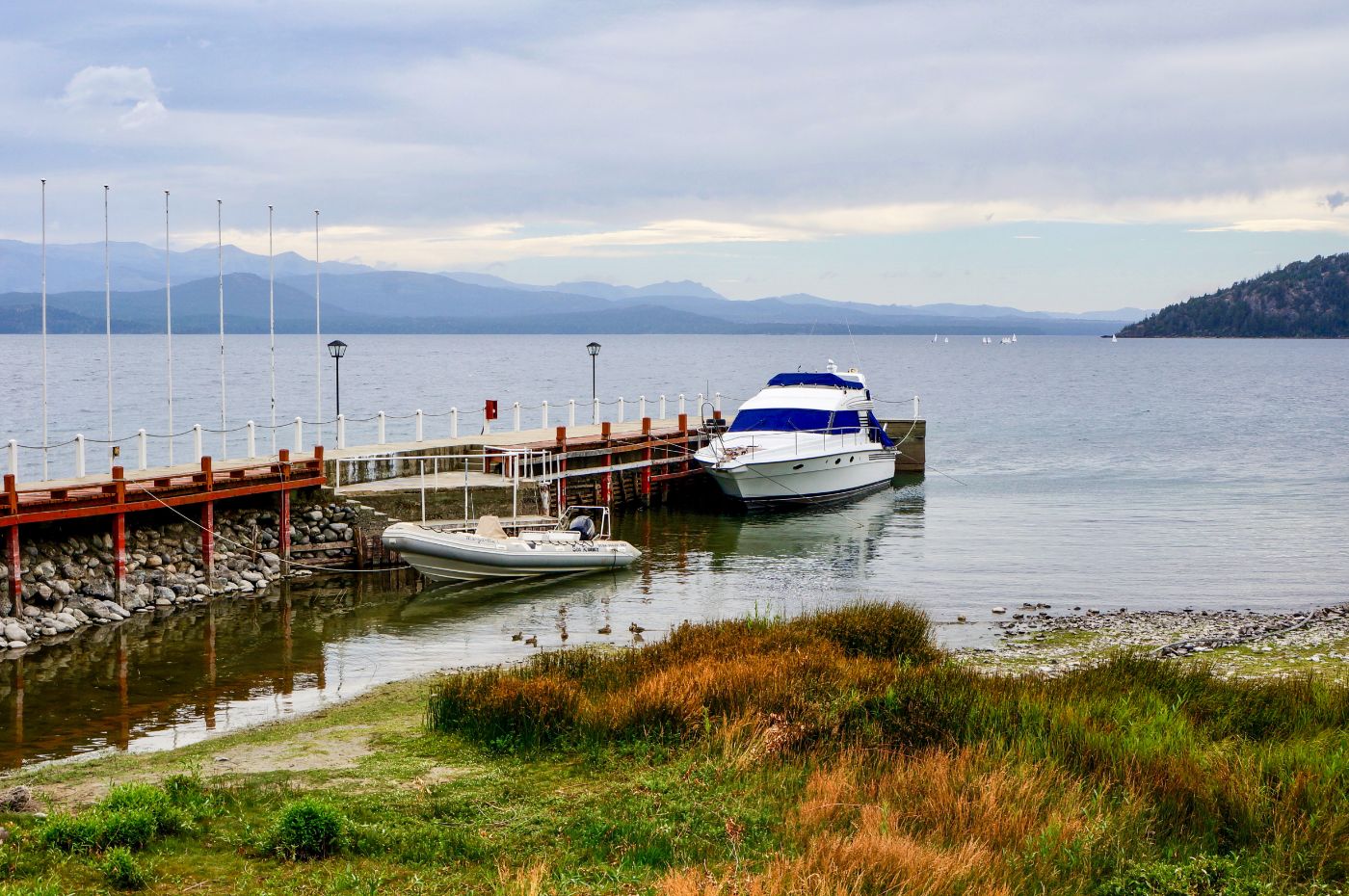Can You Sell a Deeded Boat Slip? (FL, OH, GA, TX)
If you own a deeded boat slip, you might be wondering whether you can sell it in states like Florida, Ohio, Georgia, and Texas. Selling a deeded boat slip is similar to selling any other real estate property. In most cases, you can sell a deeded boat slip, which represents exclusive ownership of the slip along with non-exclusive rights to use and enjoy the common areas of the marina. For example, at Emery Cove Yacht Harbor, you receive a Grant Deed in your name upon purchasing a slip, which legally records your ownership.
You can sell a deeded boat slip, but you have to review any rules, regulations, or restrictions imposed by your HOA; gather all necessary documentation, such as the deed to the boat slip, proof of ownership, and any relevant taxes, fees, and assessments paid; find buyers; and prepare a sales contract.
Selling a deeded boat slip may take longer than selling traditional real estate, as the market for boat slips can be more niche. Below, you'll find tips on how to price and sell deeded boat slips successfully.
Summary
- To ensure compliance with local and state laws and regulations and to assist in the drafting of a contract, you may speak with a real estate attorney.
- To find your prospective buyers, you can use the services of an agent with experience in marina and boat slip transactions.
- You can independently advertise the boat slip sale through local listings or online marketplaces.
- The purchase price, closing date, and any other terms or contingencies must all be specified in the sales contract.

On this page:
Process of Selling a Deeded Boat Slip
| US State | Price of a Deeded Boat Slip |
|---|---|
| Florida (FL) | $20,000 to $500,000 or more |
| Ohio (OH) | $10,000 to $100,000 or more |
| Georgia (GA) | $10,000 to $150,000 or more |
| Texas (TX) | $10,000 to $200,000 or more |
First, it's important to review and understand any rules, regulations, or restrictions imposed by your condominium association or Homeowner's Association (HOA). They may have specific requirements about transferring ownership, maintaining common elements, and ensuring the new owner abides by the rules. In some cases, HOAs may even prevent owners from using their boat slip until certain conditions are met.
Once you have familiarized yourself with any applicable regulations, make sure to gather all necessary documentation. This includes the deed to the boat slip, proof of ownership, and any relevant taxes, fees, and assessments paid. Having these documents ready will make it easier for the potential buyer to review the specifics of the boat slip and expedite the sales process.
To find potential buyers, you can either utilize the services of a real estate agent experienced in marina and boat slip transactions or advertise the boat slip sale yourself through online marketplaces or local listings. When discussing the sale with prospective buyers, be sure to provide all necessary information, such as the attached limited common elements and the benefits of owning a deeded boat slip.
After finding an interested party, prepare a sales contract. This should include all the essential terms of the sale, such as the purchase price, closing date, and any conditions or contingencies. If possible, it is recommended to consult with a real estate attorney to help draft the contract and ensure compliance with state-specific laws.
Finally, close the deal. Make certain you fulfill all the conditions set forth in your sales contract and provide the buyer with all the necessary paperwork to transfer ownership. Once the transaction is complete and the new owner has registered the boat slip with the respective state, you can celebrate the successful sale and transfer of your deeded boat slip.

Sale of Deeded Boat Slips in Florida
Florida State Legislation
Florida has specific laws regarding the sale of deeded boat slips. One important aspect to consider is that boat slips might be classified as limited common elements in a condominium declaration. This means that the ownership and transfer of the boat slip may be subject to certain restrictions and conditions outlined in the declaration. You should review your boat slip's declaration and consult with an attorney if needed to better understand these details.
Furthermore, the sale of deeded boat slips is also subject to Florida state tax laws. As of 2018, the maximum tax payable on the sale of a boat slip in Florida is $18,000. The figure includes all sales and use taxes in addition to any discretionary sales surtax. Keep these taxes in mind when determining the asking price for your boat slip.
Florida Deed Transfer Process
When you're ready to sell your deeded boat slip, the next step is to transfer the deed to the new owner. This process typically involves:
-
Preparing a new deed: The new deed should include the current owner's information, the buyer's information, and the legal description of the boat slip.
-
Signatures: Both the current owner and the buyer should sign the new deed in the presence of a notary public.
-
Recording the deed: The new deed should be filed with the appropriate Florida government office. This is usually the county clerk's office, where the boat slip is located.
Once the deed is recorded, the transfer of ownership is officially complete. Keep in mind that transferring the deed might involve additional fees, so allocate an additional budget for such expenses.

Boat Slip Title Is Crucial in Ohio
Ohio State Legislation
When it comes to selling a deeded boat slip in Ohio, it's essential to understand the state's legislation surrounding the titling and transfer of boats and outboard motors. According to the Ohio Department of Natural Resources, you need to transfer the title to the new owner before they can register it in their name. This ensures that the boat slip's legal ownership is transferred and that the buyer can properly register their newly-acquired property under Ohio regulations.
Ohio Deed Transfer Process
The deed transfer process for a boat slip in Ohio may differ from that of traditional real estate transactions. As you proceed with selling your deeded boat slip, it's crucial to consult with a legal professional to ensure compliance with state regulations and proper recording of the transfer.
- First, make sure that your boat slip title is an Ohio title, as this is necessary for the new owner to obtain an Ohio registration.
- Next, prepare the necessary documents, such as a properly executed deed, which includes essential information, such as the legal description of the boat slip and the names of the buyer and the seller.
- Lastly, ensure that the deed is recorded with the appropriate county recorder's office to finalize the transfer and provide public notice of the ownership change.
If you're wondering about the cost of buying a boat slip, here's a quick overview of it.
Riparian Rights Are Key in Georgia
Georgia State Legislation
When selling a deeded boat slip in Georgia, ensure that you fully understand the concept of riparian rights, which concern the ownership of property that is "traversed or bounded by navigable water." Riparian rights are a key factor in Georgia, as they affect property ownership and what you can legally do with a deeded boat slip.
Georgia Deed Transfer Process
In the process of selling a deeded boat slip, transferring the deed is a crucial step. To do so, you should consult with a real estate attorney, who will guide you through the necessary legal procedures. Keep in mind that any enforcement of rules or conditions by your Homeowners Association (HOA) must be recorded in public records.
When setting the price for your boat slip, consider factors like location and the value of the local real estate market. Remember that the deed transfer process may be subject to taxes, so factor those costs into your overall price as well.
Selling a deeded boat slip in Georgia requires careful attention to state laws, as well as a clear understanding of riparian rights and the deed transfer process.

Selling Deeded Boat Slips in Texas
Texas State Legislation
In Texas, boat ownership is governed by the Texas Parks & Wildlife Department (TPWD). They handle the transfer of boat titles and registration, as well as outboard motor titles.
If you own a deeded boat slip, it's important to know that this ownership is transferable, offering similar benefits to those of condos, such as tax advantages. It also provides protection from future appreciation, as your slip's value will be linked to the value of the boat stored in it.
Texas Deed Transfer Process
The process of transferring the deed to a boat slip in Texas consists of a few key steps. First, visit your nearest participating TPWD office with the buyer to transfer the boat title and registration, as well as the outboard motor title. This is particularly important in private sales to ensure a smooth transaction.
Additionally, it's crucial to consult a real estate attorney if you encounter any issues or rules that may impact the sale of your boat slip. They can help you navigate any relevant rules or recorded documents concerning your boat slip and the property it is associated with.
If you're looking to buy or rent a boat slip, here's our article on the cost difference.
Pros of Selling Boat Slip Deeds
- Transferable ownership: A significant advantage of a deeded boat slip is that the ownership is transferable. This means you can sell your slip to another buyer without any issues with transferring the title.
- Tax benefits: As the owner of a deeded boat slip, you can enjoy tax benefits similar to those of condos and other property types. These deductions can help offset costs related to the maintenance and sale of the slip.
- Investment potential: Selling a deeded boat slip can be a great investment, as the slip's value is protected from future appreciation. Boat slips can range in price from $22,000 to $67,000, offering room for profit if the market is favorable.
Cons of Selling Boat Slip Deeds
- Legal restrictions: Depending on your location, there may be legal restrictions around selling boat slip deeds, depending on the submerged land beneath the slip and your property rights. Check local laws and regulations for your state before proceeding.
- Real estate agent costs: Selling a boat slip deed could involve commission costs if you decide to use a realtor. However, you can also opt to sell the slip privately or by-owner to avoid these fees.
- Transfer of deed complexity: Completing the transfer of the deed without a lawyer can be complex, especially for warranty deeds. While it is possible to prepare the deed yourself, it is crucial to ensure it complies with your state's legal regulations to avoid issues down the road.

Tips for a successful sale of your boat slip:
-
Price it right: It's important to price your boat slip appropriately based on its location, size, and amenities. Be sure to research the prices of comparable boat slips in the area to ensure you're offering a fair price.
-
Market it effectively: Use a variety of marketing channels to get the word out about your boat slip, including online classifieds, social media, and local boating communities. Consider hiring a real estate agent who specializes in selling boat slips to help you market the property.
-
Highlight the amenities: Be sure to highlight any amenities that come with the boat slip, such as electricity, water, or security. These amenities can make your boat slip more appealing to potential buyers.
-
Make it accessible: Ensure that the boat slip is easily accessible and that potential buyers can easily view the property. Consider offering tours or open houses to interested buyers.
-
Be responsive: Respond promptly to inquiries from potential buyers and be available to answer any questions they may have. Being responsive and accommodating can help build trust and increase the likelihood of a successful sale.
-
Consider offering financing: Offering financing options to potential buyers can make your boat slip more accessible and increase your pool of potential buyers.
Is a boat slip real property or personal property? Let's find out in this article.
Pricing and valuing boat slip deeds
When valuing a boat slip deed, it's important to consider the factors below and compare the price of the deed to similar boat slips in the area. It's also a good idea to work with a professional appraiser or real estate agent who has experience valuing boat slips and can provide guidance on pricing.
-
Location: The location of the boat slip can play a significant role in determining its value. Boat slips in highly desirable locations, such as popular marinas or waterfront properties, may command higher prices than those in less desirable areas.
-
Size: The size of the boat slip can also impact its value. Larger slips are typically more expensive than smaller ones, as they can accommodate larger boats.
-
Amenities: The amenities available at the marina or boat slip can also impact the price. Boat slips with amenities such as electricity, water, and security may be more valuable than those without.
-
Demand: The level of demand for boat slips in a particular area can also impact the price. If there are more people looking for boat slips than there are available slips, prices may be higher.
-
Market trends: It's important to consider the current market trends when evaluating a boat slip. For example, if there has been a recent increase in demand for boat slips in the area, prices may be on the rise.
Did you find the answer to your specific question?
👍 0 👎 0



Leave a comment